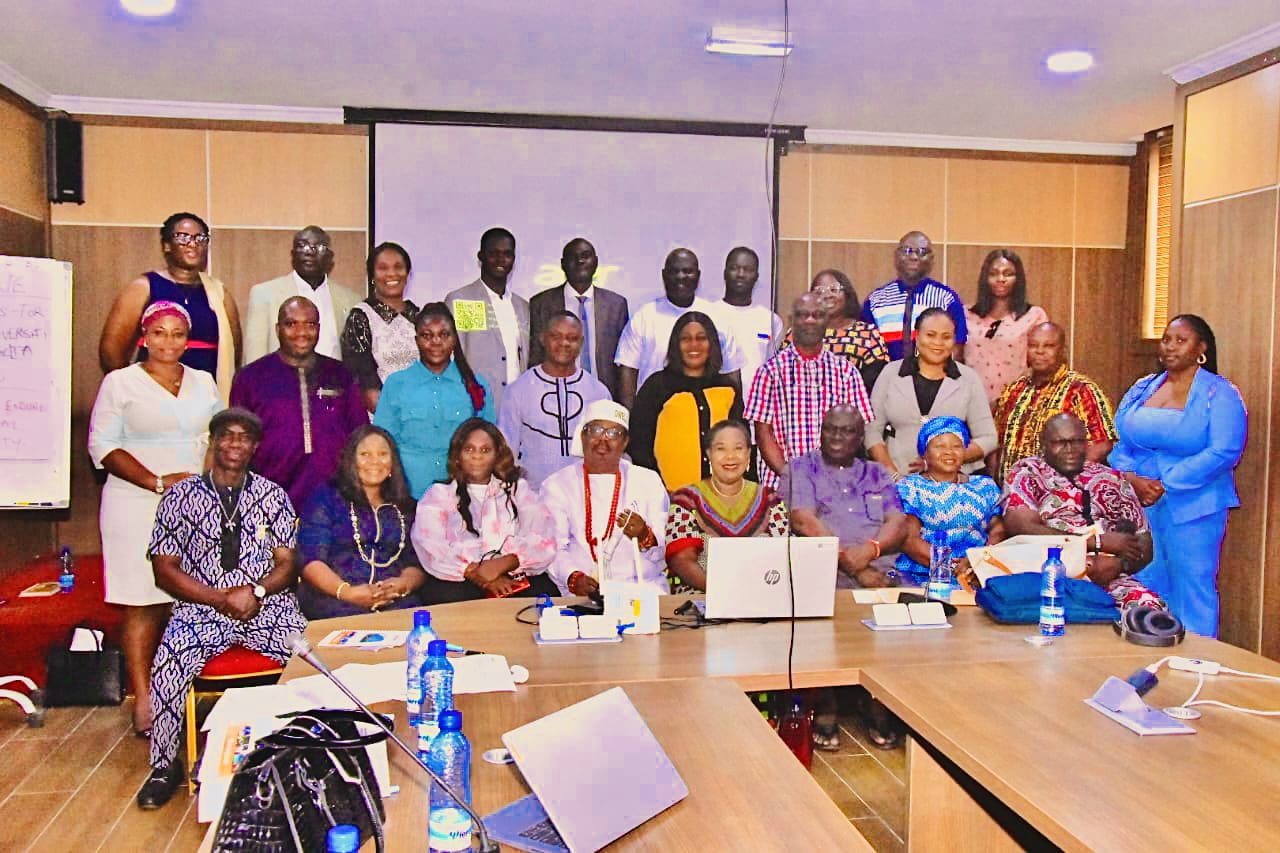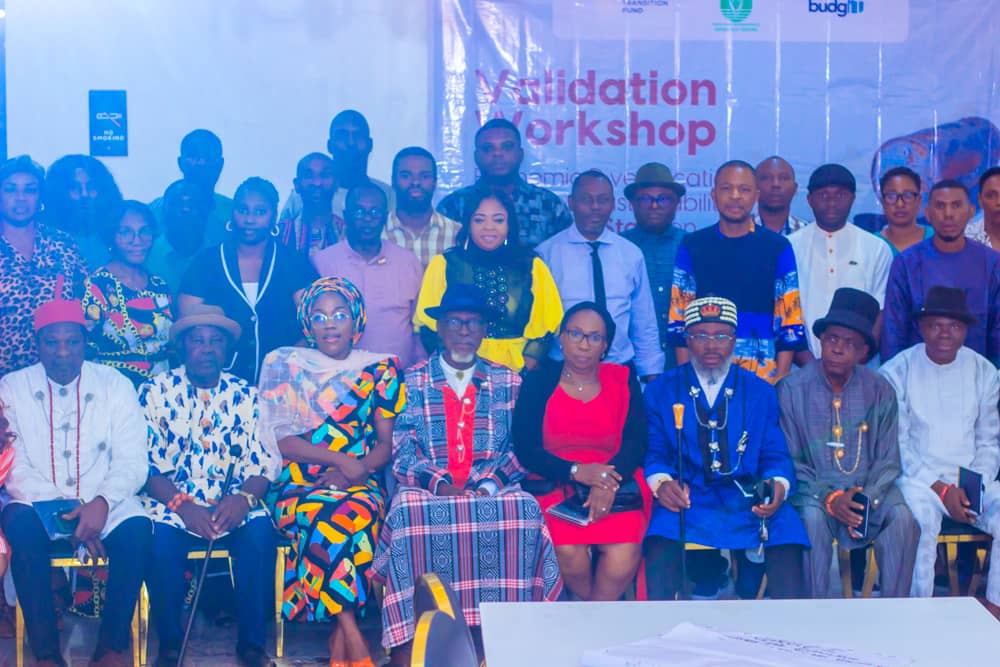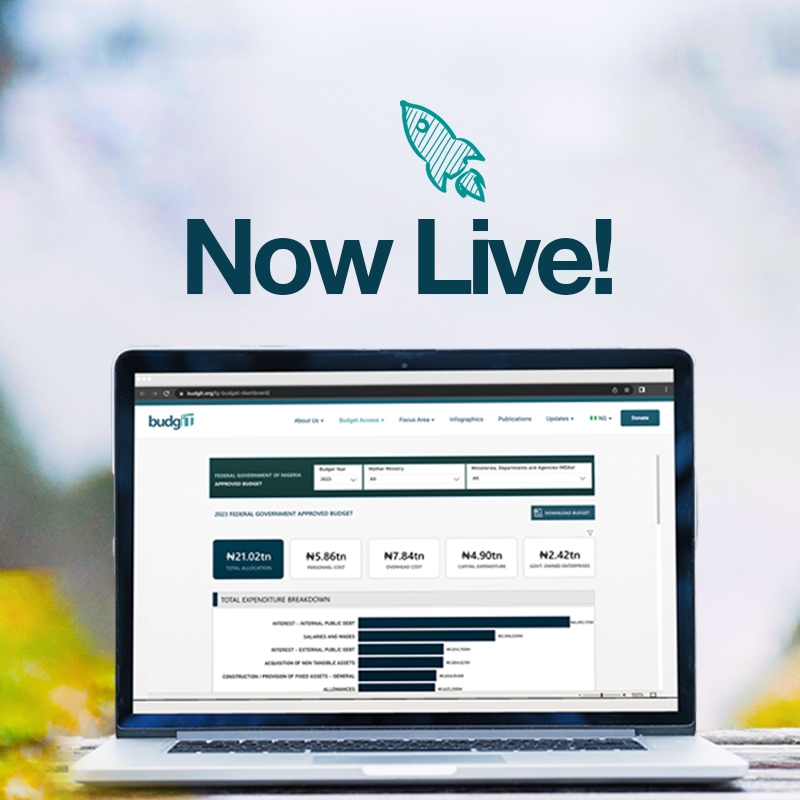Delta State faces significant challenges due to its heavy reliance on oil revenue, which exposes it to risks from declining global oil prices. This dependency has contributed to widespread poverty, environmental degradation, and inadequate infrastructure, leaving the state vulnerable to economic instability. With fiscal health largely tied to federal allocations, there is an urgent need to explore alternative revenue sources and strategies for sustainable growth.
To address these pressing issues, BudgIT, in collaboration with the Community Empowerment and Development Initiative and with support from the Energy Transition Fund, organised a validation workshop in Asaba. This workshop followed a series of focus group discussions aimed at exploring strategies for economic diversification and ensuring fiscal sustainability in Delta State. It served as a critical milestone for stakeholders to brainstorm, develop actionable solutions, and enhance collective understanding of the challenges and opportunities that exist within Delta State’s economic landscape. The validation workshop brought together community leaders, policymakers, and civil society organisations to identify barriers to economic diversification and develop actionable strategies for fiscal sustainability and resilience in Delta State, thereby ensuring a more stable and prosperous future for its communities.
Challenges to Revenue Generation
The workshop identified several challenges hindering increased revenue generation in Delta communities. This included the following:
- Corporate Social Responsibility (CSR) Failures: Many oil companies operating within the locality fail to meet their CSR commitments, resulting in inadequate provision of essential infrastructure and services.
- Energy Supply Issues: Despite the availability of resources for renewable energy, the lack of a reliable power supply remains a significant barrier to economic activity and development.
- Gas Flaring Concerns: Ongoing issues related to gas flaring not only contribute to environmental degradation but also represent lost opportunities for energy generation.
- Poor Road Conditions: Bad roads hinder transportation and trade, impacting agricultural productivity and overall economic growth.
Identified Areas of Diversification
- Infrastructural Development: The construction of capital projects, such as roads, schools, and healthcare facilities, is vital for fostering economic activities and improving living standards. Investments in infrastructure will lead to job creation and improved access to essential services, thereby stimulating local economies.
- Service Sector: The development of the service sector, particularly in tourism (including ecotourism), finance institutions, and the informal sectors, will drive economic growth. Promoting Delta State as a tourism destination could attract both local and international visitors, generating revenue and creating employment opportunities.
- Manufacturing/Industrialisation: Encouraging the establishment of cottage industries focused on high-productivity activities is essential. Investment in the green economy, including renewable energy projects, can not only diversify the economy but also contribute to environmental sustainability and job creation.
- Information and Communication Technology (ICT): The importance of training and retraining human resources in the ICT sector cannot be overstated. Adequate provision of hardware and software in educational institutions is necessary to equip the workforce with relevant skills, fostering innovation and technological advancement in the region.
- Mining/Minerals Development: Developing skills in the mining sector and directing productive resources towards this area will enhance economic output. Implementing sustainable mining practices will ensure that local communities benefit from the extraction of natural resources.
- Improved Transportation: Enhancing transportation infrastructure, particularly roads linking rural areas to urban centres, is crucial for the movement of agricultural produce and facilitating human transportation. Improved connectivity can open up markets for farmers and promote trade.
- Power/Energy Sector Development: Investing in the power and energy sector is essential for supporting all other sectors. Reliable energy sources will enhance productivity and attract investments, which are crucial for economic diversification.
- Skills Acquisition/Capacity Building: Promoting skills acquisition and capacity-building initiatives targeted at youth and women will empower these demographics to participate actively in the economy. Such programs should focus on entrepreneurship and vocational training, enabling participants to start their businesses.
- Public-Private Partnerships (PPPs) and Build-Operate-Transfer (BOT) Models: Encouraging PPPs in key growth areas can leverage private sector expertise and investment. BOT models can facilitate the timely completion of infrastructure projects while ensuring community needs are met.
Recommendations for Fiscal Sustainability
- Fiscal Discipline: Implementing strict resource allocation measures is necessary to ensure fiscal sustainability. This includes critically assessing the number of political appointees and prioritising essential services, which will lead to better resource utilisation.
- Budget Implementation: Ensuring transparency and accountability in budget execution is crucial. This involves regular monitoring and evaluation of budget performance, allowing for timely adjustments and fostering public trust in government financial management.
- Community Participation: Prioritising development projects based on community needs assessments is essential. Engaging local communities in the planning and implementation processes ensures that projects address actual needs and enhance ownership and accountability.
- Blocking Leakages: Establishing transparent financial systems with robust internal controls, utilising technology, will significantly reduce leakages. Implementing regular audits and oversight mechanisms will enhance accountability and foster public confidence in government operations.
- Tax Reforms and Education: Developing a friendly tax system that supports vulnerable populations while broadening the tax base is essential for increasing revenue. Public education campaigns about tax obligations can improve compliance and promote a culture of fiscal responsibility.
- Effective Debt Management: Implementing sound debt management practices is vital for maintaining fiscal health. This includes assessing the sustainability of debt levels and ensuring that borrowing is directed towards productive investments that yield economic returns.
- Increase Domestic Revenue Mobilisation: Exploring diverse revenue sources, including non-oil revenue streams, is critical for reducing dependence on oil. This involves enhancing local business support through incentives and training programs to stimulate economic activity.
- Equitable Resource Distribution: Ensuring the equitable distribution of resources is essential for maintaining social stability and promoting economic growth. This involves addressing disparities and ensuring that all communities benefit from government initiatives and investments.
- Attitudinal Change: Encouraging citizens to actively participate in driving economic diversification and fiscal sustainability initiatives is crucial. Public awareness campaigns will foster a sense of ownership and responsibility among community members.
- Increased Social Investment: Promoting sustainable educational institutions focused on digital technology and entrepreneurship is vital for preparing the workforce for future economic challenges. Investing in education empowers individuals to make meaningful contributions to the economy.
Recommended Actions
To address these challenges, the following actions are recommended:
- Provision of Water and Healthcare Services: Ensuring access to clean water and quality healthcare services is fundamental for community well-being and productivity. This requires investment in infrastructure and service delivery.
- Utilisation of Flared Gas for Power Generation: Harnessing flared gas for electricity production will provide a sustainable energy source while addressing environmental concerns.
- Addressing Insecurity: Tackling security issues with urgency is essential for creating a conducive environment for investment and economic activities.
- Expand Transportation Infrastructure to Rural Areas: Extend ongoing road construction efforts to rural communities, improving connectivity and access to markets. Enhanced transportation will facilitate the movement of agricultural products, promote trade, and support local economies, contributing to fiscal sustainability.
- Promote Local Business Development Initiatives: Develop programs that support local entrepreneurs and small businesses through grants, training, and mentorship opportunities. Facilitating access to capital and resources will stimulate economic activities and increase non-oil revenue generation.
- Implement Robust Taxation Policies: Develop and enforce fair tax policies that broaden the tax base while ensuring that they are equitable and transparent. Education on tax obligations will enhance compliance and generate additional revenue for public services and infrastructure.
- Encourage Public-Private Partnerships (PPP): Foster PPPs to leverage private sector expertise and investment in infrastructure projects. Collaborations in areas such as transportation, energy, and education will drive economic diversification while ensuring efficient resource utilisation.
- Focus on Skills Development and Capacity Building: Invest in training programs that equip the workforce with skills relevant to emerging sectors such as ICT, renewable energy, and manufacturing. A skilled workforce is essential for attracting investments and driving innovation.
- Enhance Transparency and Accountability in Governance: Strengthen governance frameworks to ensure fiscal discipline and accountability in resource allocation. Implementing transparent budgetary processes will build public trust and encourage community involvement in economic planning.
- Promote Sustainable Agricultural Practices: Encourage the adoption of sustainable agriculture practices to increase productivity and ensure food security. Supporting local farmers with resources and training will enhance agricultural output and contribute to fiscal sustainability.
We urge all stakeholders, including government agencies, industry players, community members and civil society organisations to unite in a collaborative effort to implement these necessary changes.
By working together, we can foster economic diversification and enhance fiscal sustainability in Delta State beyond oil.
Signed:
- AFRODEP
- BIRS, Delta State
- BudgIT Foundation
- Centre for Peace, Warri
- Community Empowerment and Development Initiative
- Community Union
- Concern for Women and Youth Empowerment
- Delta House of Assembly – Committee on Finance
- Eziwdi Initiative for Sustainable Development
- Gracious Sisters
- Green Energy Foundation
- Ibusa Community, Delta State
- Koyenum Immali Foundation
- Ministry of Economic Planning, Delta State
- Ministry of Environment, Delta State
- Ministry of Finance, Delta State
- Ofagbe Community, Delta State
- REEDS Foundation
- Ukala Okwute Community, Delta State



